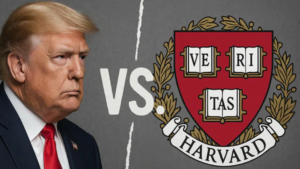The move by the South Korea’s opposition lawmakers to impeach President Yoon Suk Yeol following his controversial declaration of martial law failed to garner two-thirds majority in the National Assembly. While procedurally defeated, the nation remains deeply divided as it questions its leadership and future direction.
South Korea’s: The Impeachment Attempt That Fell Short
The impeachment motion needed 200 votes in the 300-member National Assembly but only managed to get 195, thanks to a tactical boycott by lawmakers from Yoon’s People Power Party (PPP). Speaker Woo Won-shik declared the vote invalid, citing the lack of quorum.
The opposition, with 192 seats, presented the no-confidence motion against President Yoon for declaring martial law during a recent spate of political unrest. In this case, only three PPP lawmakers voted in the no-confidence motion, and this ensured that the motion was defeated. In this regard, the National Assembly could not proceed to ballot counting, and the impeachment attempt was thus dismissed.
South Korea’s: Martial Law Declaration Sparks Controversy
It was the first time since the last forty years that President Yoon declared martial law last month. Although it was brief, the measure saw military forces surround the National Assembly building with helicopters hovering menacingly overhead. The move triggered widespread criticism across the political spectrum and public outcry.
The martial law decree was unanimously overturned by the National Assembly, forcing the president to rescind it within hours. However, such an event left a great scar on South Korea political stability, which called out for the resignation of a president.
South Korea’s: Public Sentiment and Political Fallout
A recent poll showed that a majority of South Koreans favored impeachment, which reflects growing discontent with Yoon’s leadership. Public protests have surged, demanding accountability and changes in governance. The failed impeachment motion has only intensified the nation’s political divisions, with opposition parties vowing to renew their efforts after the mandatory waiting period ends on December 11.
South Korea’s: PPP’s Stand and Speculation of Constitutional Amendment
While some members of the PPP opposed Yoon’s martial law declaration, the party itself is united against his impeachment. That is because leaders, fearing that removal, could hand their political base to liberal forces, potentially destabilizing it.
Speculation has been that Yoon might consider offering a constitutional amendment to shorten his presidential term. Although unprecedented, this could be an attempt at compromise to placate public anger and forestall another impeachment attempt.
South Korea’s: Consequences for South Korea and its Allies
The political turbulence that has been ongoing in South Korea has alarmed its key allies, such as the United States and Japan. Stability in South Korea is very important for regional security, especially considering its strategic position amid rising tensions with North Korea.
Whether this is a political crisis or otherwise, the ability of South Korea’s government to deal with these key domestic and international issues remains to be seen. Is it possible for Yoon to regain public trust, or must they face renewed opposition efforts?

Frequently Asked Questions
1. Why was President Yoon Suk Yeol impeached?
President Yoon was impeached over a controversy surrounding his declaration of martial law during a period of political unrest. The move stirred widespread criticism and allegations of authoritarianism.
2. Why did the impeachment motion fail?
The impeachment motion was voted down at the National Assembly because lawmakers from President Yoon’s People Power Party boycotted the vote, falling short of two-thirds of the required majorities.
3. What is the public reaction towards the declaration of martial law?
The declaration of martial law sparked public outrage among South Koreans who called the declaration an overreach of power, and protests demanding Yoon’s resignation have intensified after the declaration.
4. What is the opposition going to do next?
Opposition parties have threatened to revisit the impeachment attempt after December 11, when they can legally propose another motion.
5. How has the political turmoil affected South Korea’s allies?
Political instability has worried South Korea’s allies, especially the United States and Japan, who believe stability in the country is vital for regional security and economic cooperation.







Be First to Comment